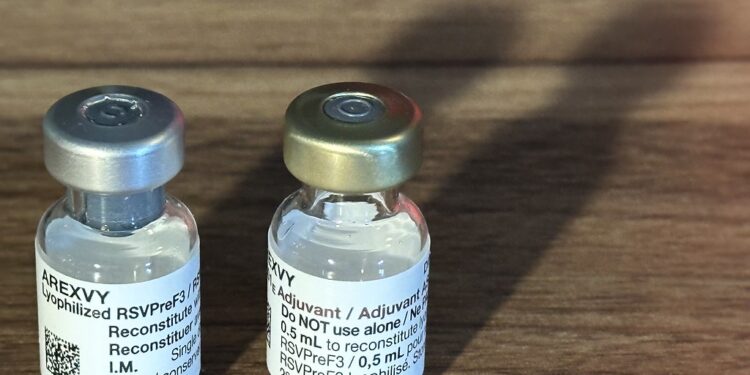In a surprising turn of events, the pharmaceutical industry has managed to produce not one, but three different RSV (respiratory syncytial virus) vaccines at record speed. However, concerns about safety have emerged, as pharmacies are mixing up the vaccines and even administering the adult version to children. It seems that when it comes to vaccines, the mantra is “it's all good.” But should we really be accepting this approach without question?
For 60 years, the pharmaceutical industry struggled to develop a safe RSV vaccine after a failed attempt in the 1960s. Despite this history, the Food and Drug Administration (FDA) and the Centers for Disease Control (CDC) recently approved three different RSV vaccines for various demographics. However, serious safety concerns have been raised about these vaccines.
The FDA approved GSK's Arexvy and Pfizer's Abrysvo for seniors over 60, Pfizer's Abrysvo variant for pregnant women, and AstraZeneca's Nirsevimab, a monoclonal antibody, for newborn babies. Unfortunately, all three vaccines have serious problems.
Recent reports have revealed that more than 150 women and babies have been administered the wrong RSV shot. Babies were given Pfizer's RSV shot for pregnant women or GSK's shot for seniors, while pregnant women were given the senior shot. The CDC's own Advisory Committee on Immunization Practices even raised concerns about the overstimulation of the immune system caused by these shots.
One of the vaccines, Pfizer's RSV shot for seniors, has been linked to Guillain-Barré syndrome, a dangerous form of neuropathy. This is particularly concerning considering the known cases of GBS and Bell's palsy associated with COVID vaccines. Additionally, GSK had to abort its version of the vaccine due to preterm and neonatal deaths during clinical trials.
Despite these safety concerns, a significant percentage of pregnant women and mothers of eligible infants have opted for the RSV vaccine. The CDC reported that 13.1% of pregnant women and nearly 21% of mothers had received the Abrysvo vaccine, while another 27% planned to vaccinate their children. This means that half of the babies in the country are on their way to receiving this potentially risky vaccine.
The carelessness of the industry in administering the wrong shots reflects a culture that treats vaccination as a ritual rather than a medical procedure. Vaccination should be precise and tailor-made to individuals, just like any other medical intervention. However, we are being sold the idea that it's all or nothing when it comes to vaccines.
The number of routine vaccines has steadily grown over the years. In 1983, the CDC's vaccine schedule included just three vaccines, compared to the current 17 routine vaccines for children. The industry's immunity from liability under the 1986 National Childhood Vaccine Injury Act has likely contributed to this increase.
Now, pregnant patients are also under pressure to receive multiple shots, including the new RSV vaccine. It's important to remember that we are still assessing the damage caused by COVID vaccines, and it may take years to fully understand the long-term effects.
Despite the growing concerns about vaccine safety, the CDC continues to push for mass vaccination through its “One Health” concept, which aims to impose a centrally controlled system on every human being. This raises questions about the trustworthiness of the CDC and its commitment to public health.
In conclusion, the rush to develop RSV vaccines has raised serious safety concerns. The mixing up of vaccines and the administration of the wrong shots highlight the carelessness of the industry. Red-state health departments have an obligation to audit the CDC vaccine schedule and prioritize safety over speed. Vaccination should be a precise and individualized medical procedure, rather than a one-size-fits-all approach. It's time to reassess our approach to vaccines and prioritize the well-being of individuals over mass vaccination.







